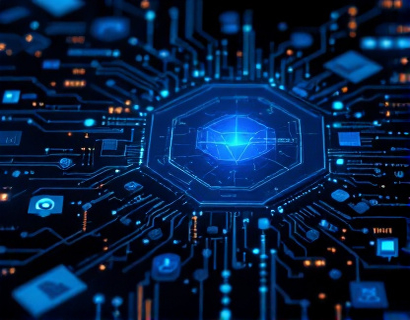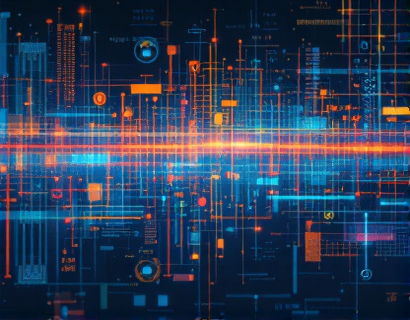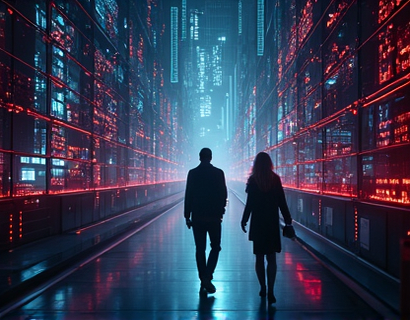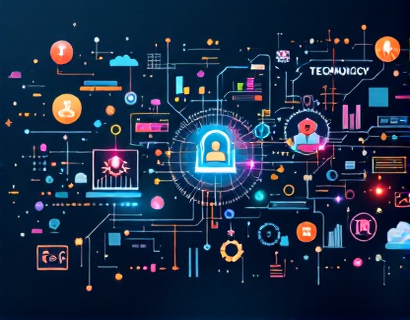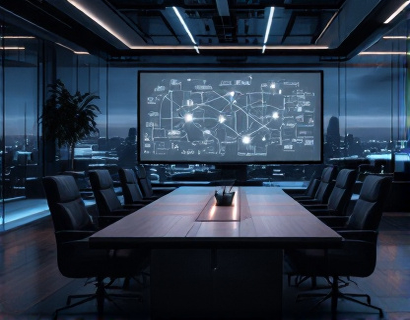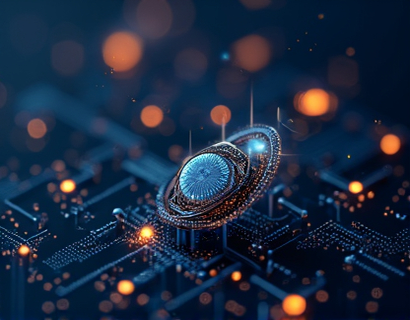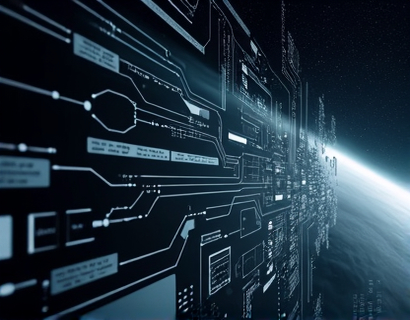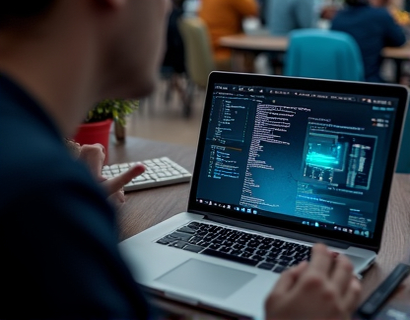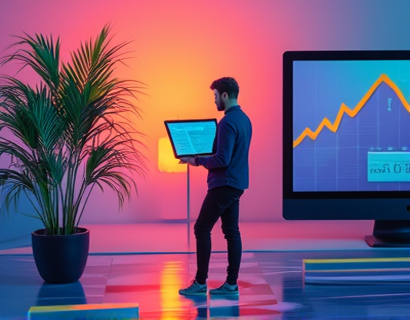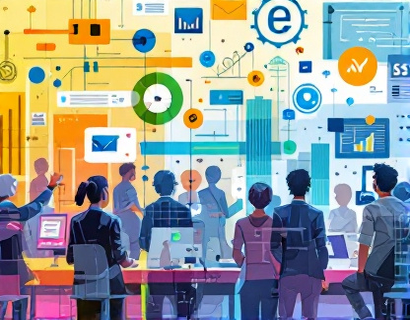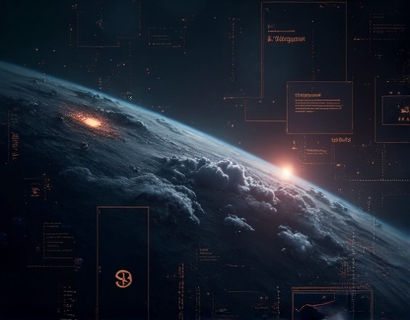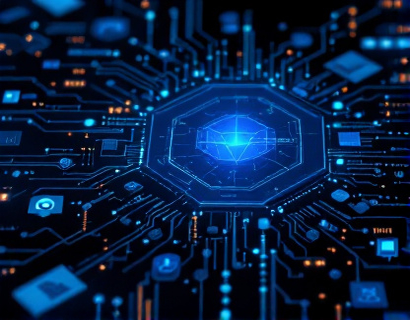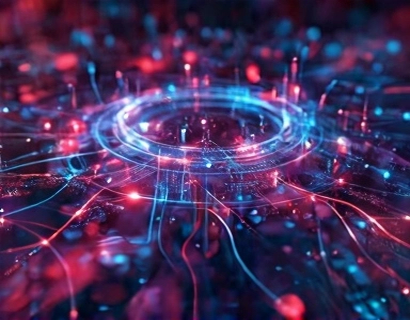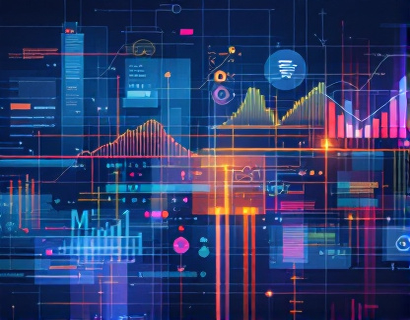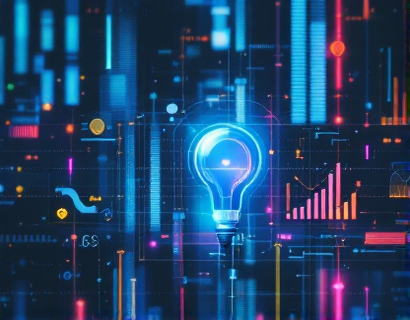Decentralized Productivity: Revolutionizing Business with AI and Crypto Integration
The integration of artificial intelligence (AI) and cryptocurrency is ushering in a new era of decentralized productivity, transforming the way businesses operate and collaborate digitally. This revolution is not just about adopting new technologies but redefining the very foundations of digital workspaces. For tech innovators and early adopters, understanding this convergence is crucial to staying ahead in a rapidly evolving landscape.
Decentralized productivity tools powered by AI and crypto offer a unique blend of security, transparency, and efficiency. These tools leverage blockchain technology to create immutable and tamper-proof records, ensuring that all transactions and collaborations are secure and verifiable. AI enhances these systems by providing intelligent automation, predictive analytics, and personalized user experiences, making complex tasks more manageable and streamlining workflows.
Blockchain: The Backbone of Decentralized Productivity
Blockchain technology serves as the backbone of decentralized systems, providing a distributed ledger that is transparent, secure, and resistant to censorship. In the context of productivity tools, blockchain ensures that all data and transactions are recorded in a way that is immutable and accessible to all participants. This transparency builds trust among users, as every action can be traced back to its origin without the need for intermediaries.
Smart contracts, a key feature of blockchain, automate and enforce agreements without the need for central authorities. In a business setting, smart contracts can automate processes such as payment releases, project milestones, and compliance checks. This automation reduces the risk of human error and speeds up operations, making businesses more efficient and responsive.
AI: Enhancing Decentralized Tools
Artificial intelligence complements blockchain by adding a layer of intelligence and automation to decentralized systems. AI algorithms can analyze vast amounts of data to identify patterns, predict outcomes, and optimize processes. In a decentralized environment, AI can manage complex tasks such as data verification, content moderation, and user authentication, ensuring that the system operates smoothly and securely.
For instance, AI-powered chatbots can provide 24/7 customer support within decentralized platforms, handling inquiries and resolving issues in real-time. Machine learning models can also enhance user experiences by personalizing content and recommendations based on individual preferences and behaviors. This level of personalization is particularly valuable in collaborative environments where users have diverse needs and work styles.
Decentralized Collaboration Platforms
Decentralized collaboration platforms are at the forefront of this revolution, offering tools that enable teams to work together seamlessly without relying on centralized servers. These platforms use blockchain to manage file storage, version control, and access permissions, ensuring that all team members have secure and consistent access to project data.
One of the key benefits of decentralized collaboration is the elimination of single points of failure. Since data is distributed across a network of nodes, the risk of data loss or unauthorized access is significantly reduced. This resilience is crucial for businesses that handle sensitive information and require high levels of data security.
Moreover, decentralized platforms foster greater transparency and accountability. All actions within the platform are recorded on the blockchain, providing a clear audit trail. This transparency helps build trust among team members and stakeholders, as everyone can verify the progress and outcomes of projects.
AI-Driven Project Management
AI-driven project management tools are redefining how businesses plan, execute, and monitor projects. These tools use machine learning to predict project timelines, resource allocation, and potential risks, providing insights that human planners might miss. By analyzing historical data and real-time metrics, AI can optimize project workflows, ensuring that tasks are completed efficiently and on schedule.
For example, AI can automatically assign tasks based on team members' availability and skill sets, reducing the administrative burden on project managers. It can also detect bottlenecks and suggest adjustments to keep projects on track. This level of automation not only saves time but also enhances productivity by focusing human resources on high-value tasks.
Enhanced Security through Decentralization and AI
Security is a paramount concern in any digital collaboration environment. Decentralized systems, combined with AI, offer robust security measures that protect sensitive data and prevent unauthorized access. Blockchain's cryptographic algorithms ensure that data is encrypted and secure, while AI can detect and respond to potential threats in real-time.
AI-powered security solutions can monitor network activity for unusual patterns that may indicate a breach or malicious activity. These systems can automatically trigger alerts and take corrective actions, such as isolating affected nodes or updating security protocols. This proactive approach to security is essential in a landscape where cyber threats are becoming increasingly sophisticated.
User Experience and Accessibility
The integration of AI and decentralized technologies also focuses on improving user experience and accessibility. Decentralized platforms can leverage AI to create intuitive interfaces that adapt to individual user preferences and behaviors. This personalization ensures that users can interact with the platform in a way that is most comfortable and efficient for them.
Accessibility is another critical aspect. Decentralized platforms can be designed to be accessible across various devices and networks, including those with limited internet connectivity. By using blockchain-based solutions, these platforms can ensure that users in remote or underserved areas have equal access to advanced productivity tools.
Challenges and Considerations
While the potential of decentralized productivity tools powered by AI and crypto is immense, there are challenges that need to be addressed. One of the primary concerns is scalability. Blockchain networks, particularly those using proof-of-work consensus mechanisms, can face performance issues as the number of transactions increases. However, newer consensus algorithms and layer 2 solutions are being developed to address these scalability challenges.
Another consideration is the regulatory landscape. As decentralized technologies evolve, governments and regulatory bodies are beginning to take notice. Ensuring compliance with existing laws and regulations while advocating for favorable frameworks is essential for the widespread adoption of these tools.
Education and adoption are also critical. Many businesses and individuals are still unfamiliar with blockchain and AI technologies. Providing educational resources and demonstrating the practical benefits of decentralized productivity tools can help drive adoption and innovation in this space.
Future Prospects
The future of decentralized productivity, driven by AI and crypto integration, holds tremendous potential. As more organizations recognize the advantages of these technologies, we can expect to see a surge in innovative applications and use cases. The convergence of decentralization, AI, and other emerging technologies such as the Internet of Things (IoT) and 5G will further enhance the capabilities of productivity tools, making them more powerful and versatile.
For tech innovators and early adopters, embracing this revolution means staying informed about the latest developments and being willing to experiment with new solutions. By doing so, they can position themselves at the forefront of a transformative shift in how businesses operate and collaborate in the digital age.








